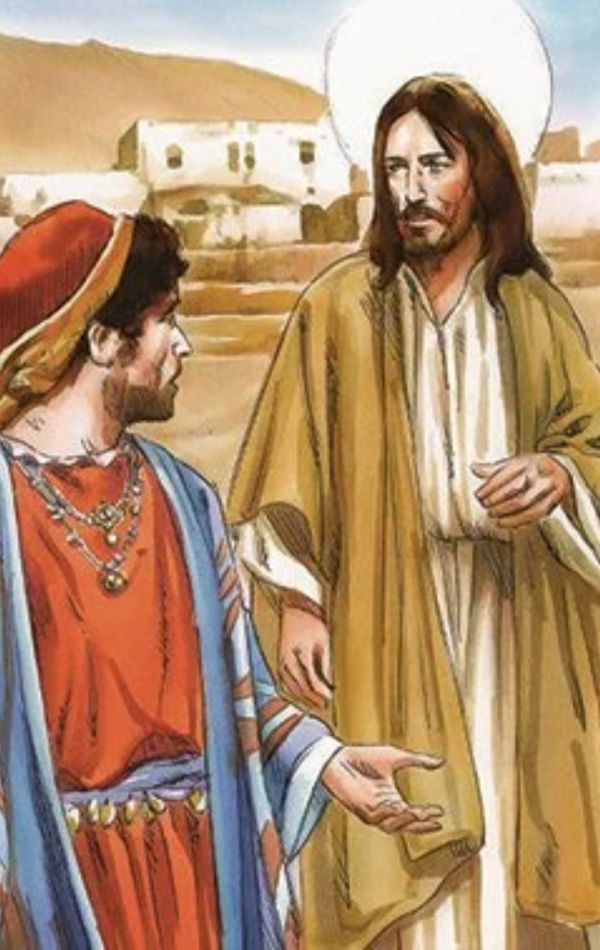From customs with limits to the Spirituality of possessions-Relation
(Mt 19:16-22)
At the time of Jesus, people lived a moment of social collapse and disintegration of the communitarian dimension of life - in the past more related to family, clan and community.
Herod's policy guaranteed the Empire control of the situation: a reality of maximum exploitation and severe economic and civil repression.
Religious impositions even ensured the subjugation of consciences - and the spiritual authorities were happy to act as guarantors of this most covert form of slavery.
The condition of total (civil and religious) subjugation of the people everywhere tended to diminish the sense of interpersonal and group fraternity.
There was no lack of severe conditions of social and cultural exclusion, which accentuated the bewilderment of the people, who were marginalized, homeless and without references - even religious ones.
Some movements attempted to reweave the lacerations and propose shared forms of life, certainly - but united by an idea of nagging decontamination [Essenes, Pharisees, Zealots].
Jesus chooses the path of a decisive vital redemption, as opposed to the ideologies of the ascetic purism and custom rediscovery.
For a radical fulfilment of the spirit of the Law, it was necessary to go beyond doctrines. They excite some, yet they do not erase our inner sense of emptiness.
The community of sons does not keep itself within the 'limits', and does not live apart; thus it does not accentuate the torments of imperfection, or the perception of incompleteness, nor the marginalizations - but welcomes them.
It does not feel endangered by contact with the realities that the external legalism of devotion considered dangerous and cursed or in sin. It trembles for them.
The Church recognises the value of existential poverties: it feels it’s not enough to seek “good things” without 'fire' within.
It confesses the richness not of everything that is already recognizable and static, but of new positions and differing relationships, which dilate the present and open up creative visions of the future.
Faith, in short, is not a popularly identified belief capable of accrediting roles, tasks and characters.
In vv.18-19 Jesus does not enumerate commandments that would make the interlocutor [as they used to say] live 'more from near' to 'God alone', but the criteria that bring us close and alongside our sisters and brothers.
The honour reserved for the Father is not one of many forms of competitive love: the threshold is the neighbour.
The Son does not even mention the first commandments, those identifying the exalted Lord of his people.
Our hands embrace the time-less in concrete love.
They trigger the dynamisms that annihilate the torments of the least, and thus in an unthinkable way help us rediscover the meaning and joy of life - letting the world be reborn, far more than with the usual forms of insurance.
Conscious living does not have to do with usage and clichés [which produce alibis] but with another serenity and joy: the wonder of the unusual and of new degrees, places, states, relationships, situations.
There is no other richness that can fill our days, while there is only sadness (v.22) in the old bonds without humanity. They lower us all into an artificial mental and emotional reality.
To detach oneself from immediate calculation seems an absurd choice, far-flung and destined to go wrong, but on the contrary, it is the winning move that opens the door to new Life of the Kingdom and to Happiness, which can be accessed precisely when tangible goods are transformed into Relationship.
Let us free ourselves from the plethora of misguided goals that crush our paths, making them swampy.
We have to reflect well on «that which is eminent» (v.17).
To internalize and live the message:
Have you learnt to grasp your life from the Goodness of God, or to be lulled and content with what is there?
[Monday 20th wk. in O.T. August 19, 2024]












